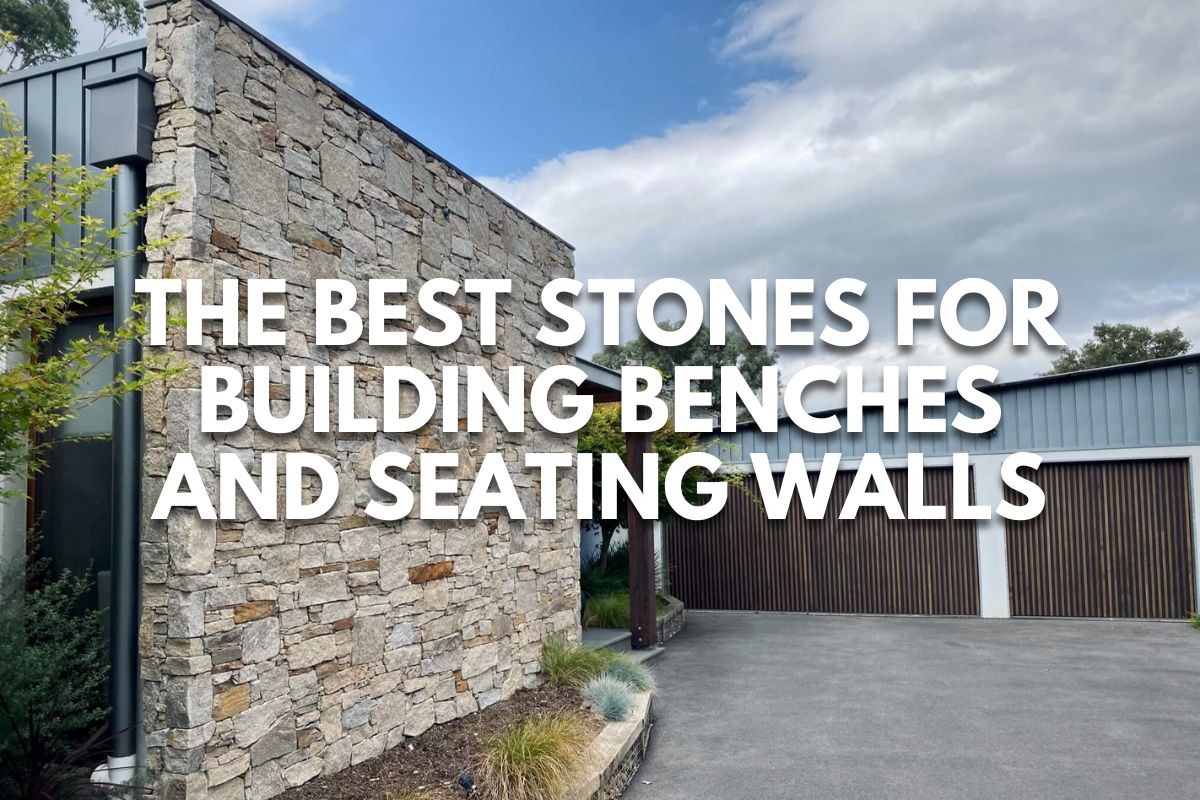
Traditional landscaping often uses materials that harm the environment, contributing to soil degradation and resource depletion.
The extraction and transport of these materials can result in significant ecological damage, including erosion and habitat loss, leaving homeowners searching for greener options.
This article explores sustainable landscaping stones that enhance the beauty of outdoor spaces and preserve the earth’s natural resources.
Discover the best eco-friendly stones with durability, aesthetic appeal, and a lower environmental footprint.
Critical Considerations for Sustainable Stone Selection
When selecting stones for sustainable landscaping, consider the following key points to ensure environmentally friendly and effective choices:
- Local Sourcing: Prioritize stones that can be sourced locally to reduce the impact of transportation and support local economies.
- Minimal Processing: Select natural stones that require minimal processing, conserving energy and reducing pollution.
- Durability and Lifespan: Opt for stones known for their durability, which will minimise the need for replacements and reduce waste over time.
- Reusability and Recyclability: To promote a circular economy, choose stones that can be reused or recycled at the end of their life cycle.
- Aesthetic Versatility: Ensure the stones are aesthetically versatile and suitable for design schemes and long-term use.
- Ecological Impact: Evaluate the environmental impact of the stone’s extraction and processing, opting for environmentally responsible practices.
- Water Conservation: If applicable, consider how the stone can aid in water conservation, such as improving drainage and reducing runoff.
Our Sustainable Stone Collection
Are you ready to transform your garden into a sustainable sanctuary? Choosing the suitable stones can make all the difference.
Here’s what to consider to ensure your landscaping choices are as eco-friendly as they are enchanting.
Walling Stones
Walling stones are essential in sustainable landscaping, providing both functional and aesthetic benefits. They can be used for various applications, including retaining walls, garden accents, borders, etc. These stones not only enhance the beauty of a landscape but also provide structural support and erosion control. Here’s a closer look at some stunning options for your outdoor space:
- Beloka Limestone: Known for its soft, creamy colour, Beloka Limestone brings a warm and inviting look to any garden setting. Its smooth texture and subtle variations in hue make it ideal for elegant retaining walls and serene garden paths.
- Blue Ridge Quartz: This stone features a striking array of blue and grey shades infused with natural sparkle that catches the light beautifully. It is perfect for creating dramatic accents on garden walls or as a standout feature in landscape designs.
- Travertine: With its earthy tones ranging from beige to rust, Travertine is a versatile choice for outdoor spaces. It’s trendy for its porous texture, which adds a rustic charm to retaining walls and garden borders.
- Hotham Granite: Distinguished by its rugged appearance and durability, it showcases a mix of white, black, and grey speckles. This stone is exceptionally hard-wearing, making it an excellent choice for high-traffic areas and structural features that require lasting strength.
Ground Cover and Mulch Alternative
In sustainable landscaping, selecting suitable materials for ground cover and mulch alternatives is crucial for water conservation and weed suppression. Stones, with their natural durability and aesthetic appeal, are excellent choices. Here’s an overview of some optimal stone types for these purposes:
Jamieson Limestone
Jamieson Limestone is prized for its light grey to white tones, which reflect sunlight and help keep the soil temperature stable.
This stone type is an excellent mulch alternative. It helps retain soil moisture and suppress weed growth by creating a barrier against sunlight penetration beneath the soil. Its smooth texture and uniform appearance make it a visually appealing option for ground cover in garden beds and pathways.
Grange Limestone
Known for its darker grey shade, Grange Limestone is another superb choice for ground cover. Its denser composition helps retain moisture in the soil, which is crucial for drought-prone areas.
Like Jamieson, it effectively suppresses weeds by blocking their access to sunlight. Its robust nature ensures it remains intact over many seasons, providing a long-lasting, maintenance-free landscaping solution.
Blanco Quartz
With its distinctive white and crystalline appearance, Blanco Quartz not only adds a bright contrast to greenery but also effectively conserves water.
The quartz’s reflective properties help minimise water evaporation from the soil, making it an excellent choice for areas requiring frequent moisture.
Additionally, these stones’ heavy coverage prevents weeds from establishing, reducing the need for chemical herbicides.
Pathways and Patios
Pathways and patios are integral to any landscape design, offering functionality and aesthetic appeal. When constructed with sustainable practices, they contribute positively to the environment.
Here’s a closer look at some excellent stone options for creating eco-friendly pathways and patios, with a focus on their suitability for permeable installation methods:
Stirling Sandstone
This stone is renowned for its robustness and natural beauty, featuring warm beige and subtle red tones that blend seamlessly with outdoor environments.
Stirling Sandstone can be laid with gaps between the stones, filled with gravel or grass, to allow for water permeability.
This helps reduce runoff and promotes natural water absorption into the ground, making it ideal for sustainable pathways and patio applications.
Jasper Limestone
Jasper Limestone offers a distinctive appearance with its deep blue and grey hues strikingly contrasting garden settings. It is also suitable for permeable installations, where the stone can be set with spacing to facilitate water drainage, thus preventing waterlogging and enhancing groundwater recharge.
Jasper Limestone is durable and maintains its colour over time, making it a popular choice for both pathways and patios.
Wyndham Quartz
Known for its durability and sparkling aesthetics, Wyndham Quartz features a mix of silvery and white tones that reflect sunlight beautifully.
Wyndham can be used in permeable paving systems, where the joints between the stones are filled with permeable material. This not only helps manage rainwater but also adds a luxurious sheen to outdoor spaces.
Sustainable Installation Practices
Sustainable installation practices are crucial to maximising the environmental benefits of using natural stones in landscaping. Here’s how to implement these practices effectively:
- Porous Surfaces: Utilizing stones that allow water permeation is essential in reducing surface runoff and encouraging natural water cycles. Installation patterns such as spaced placements or gravel and sand fillers between stone slabs create gaps that facilitate water absorption into the soil. This helps manage heavy rainfall efficiently and supports local ecosystems by maintaining natural water levels and soil quality.
- Minimise Material Waste: Precision in the planning phase is crucial for reducing waste during stone installation. By using detailed measurements and advanced cutting techniques, you can ensure that stone materials are utilised efficiently. Planning should include calculating the number of stones needed and determining the most effective cutting strategy to minimise off-cuts. Reusing leftover stone pieces in different landscape areas, such as small garden borders or as aggregate for drainage systems, can further reduce waste.
- Avoid Harsh Chemicals: Maintaining the natural beauty of stone without using chemical cleaners is essential for protecting the environment. Opt for natural cleaning agents like vinegar or mild soap to remove dirt and stains from rocks. Regular sweeping and rinsing with water are often sufficient to keep the stones clean without harming nearby plants or leaching chemicals into the soil.
Additional Sustainable Design Tips
Incorporating eco-friendly practices can significantly enhance your outdoor space’s overall efficiency and beauty when designing a sustainable landscape with stone features. Here are some essential design tips to consider:
- Native Plants: Integrating native plants into your stone landscaping is smart. These plants are adapted to the local climate and soil conditions, requiring less water and maintenance than non-native species. Pairing them with stones helps create natural, low-maintenance areas that are resilient and sustainable. This approach not only conserves water but also supports local biodiversity.
- Xeriscaping: Xeriscaping is a landscaping philosophy that reduces or eliminates the need for supplemental water from irrigation. It involves selecting plants that require minimal water and combining them with design techniques that minimise water usage. Stones are crucial in xeriscaping by covering soil and reducing water loss through evaporation. Strategically placed stones can also direct water flow to plants as needed, making them integral to water-efficient garden designs.
- Use of Mulch: Alongside stone, organic mulches such as wood chips or bark around plantings can further reduce water evaporation and suppress weed growth. This practice complements the stones’ thermal properties by keeping the soil moist and cool, decreasing the need for frequent watering.
Conclusion
Explore our diverse collection of sustainable stones at Splendor in Stone, offering a range of options to enhance your landscape’s beauty and durability while benefiting the environment.
Choose thoughtfully, and let us guide you in sustainably selecting and installing these natural elements.
Start your eco-friendly landscaping journey with us today!
More To Explore

Stone Accents: Adding Charm to Modern Interiors with Natural Stone
Modern interiors seek a balance of style, durability, and uniqueness. Natural stone accents are a game-changer, adding timeless elegance and character to any space. As

Natural Stone Features That Will Transform Your Living Room
Natural stone elevates any living room with elegance, texture, and timeless appeal. Its versatility allows it to enhance both modern and traditional spaces. From stone


